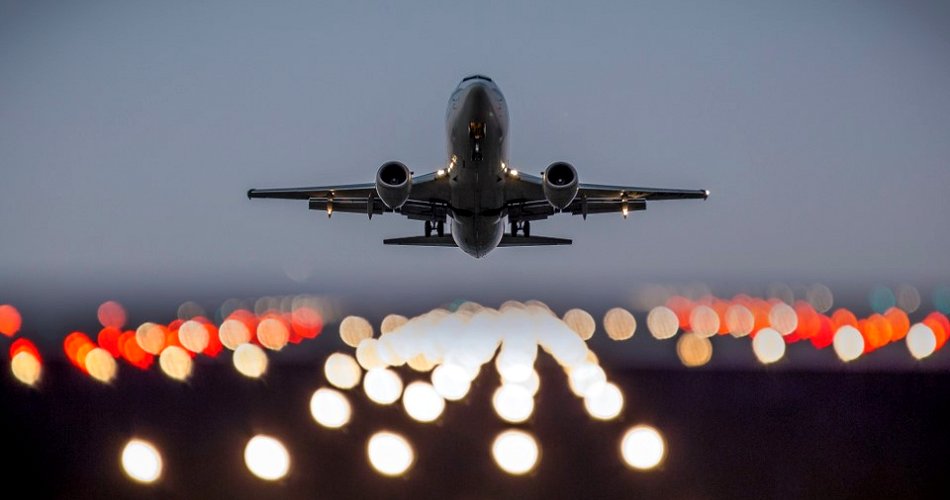Understanding Aerophobia: Unraveling the Psychological Processes and Seeking Support
Published on 17th June, 2024 by Dr. Sanveen Kang

Understanding Aerophobia: Unraveling the Psychological Processes and Seeking Support
Aerophobia, commonly known as the fear of flying, is a specific phobia that affects a significant number of individuals worldwide. While flying is a routine part of modern travel, for those with aerophobia, the thought of boarding an airplane can evoke intense anxiety and fear. To better understand aerophobia and how it manifests, it's essential to explore the psychological processes at play in its development and maintenance.
The Psychological Dynamics of Aerophobia
Conditioning and Learning: Aerophobia often develops through a process of conditioning. For example, a person may experience a turbulent flight or a panic attack during a previous flight, leading to a strong association between flying and anxiety. Over time, this association strengthens, contributing to the development of aerophobia.
Cognitive Distortions: Cognitive distortions, such as catastrophic thinking and overestimation of danger, play a role in maintaining aerophobia. Individuals with aerophobia may engage in thoughts like "flying is extremely dangerous," "the plane will crash," or "I won't be able to handle my fear," which further heighten their anxiety.
Safety Behaviors: People with aerophobia often engage in safety behaviors, such as avoiding flights, using alcohol or medication to cope with anxiety, or constantly seeking reassurance from others. While these behaviors may provide temporary relief, they reinforce the belief that flying is dangerous and perpetuate the fear response.
Anticipatory Anxiety: The anticipation of a flight can trigger significant anxiety for individuals with aerophobia. The weeks or days leading up to a flight may be marked by increased worry, physical symptoms of anxiety (e.g., racing heart, sweating, trembling), and avoidance behaviors.
Underlying Anxiety Disorders: Aerophobia can be linked to underlying anxiety disorders, such as generalized anxiety disorder or panic disorder. These disorders can contribute to heightened anxiety responses in various situations, including flying.
Seeking Support for Aerophobia
While aerophobia can be distressing, the good news is that effective treatments are available to help individuals overcome their fear of flying. Psychological interventions, in particular, have been found to be highly effective in addressing aerophobia and related anxiety disorders.
Cognitive-Behavioral Therapy (CBT): CBT is a widely used and evidence-based approach for treating aerophobia. It focuses on identifying and challenging cognitive distortions, gradually exposing individuals to feared situations (e.g., through virtual reality simulations or imaginal exposure), and teaching coping skills to manage anxiety.
Exposure Therapy: Exposure therapy, a component of CBT, involves gradual and systematic exposure to the feared stimulus (flying in this case) in a controlled and supportive environment. Over time, exposure helps desensitize individuals to the anxiety triggers associated with flying.
Relaxation Techniques: Learning relaxation techniques, such as deep breathing, progressive muscle relaxation, and mindfulness meditation, can help individuals manage anxiety symptoms both during flights and in everyday life.
Cognitive Restructuring: Cognitive restructuring techniques help individuals challenge and reframe irrational thoughts and beliefs about flying. This process involves examining evidence, considering alternative explanations, and adopting more realistic and balanced perspectives.
Psych Connect: Supporting Individuals with Aerophobia
At Psych Connect, we understand the complexities of aerophobia and offer specialized support to help individuals overcome their fear of flying. Our team of experienced clinicians, including psychologists and therapists, are skilled in evidence-based therapies such as CBT, exposure therapy, and relaxation techniques.
Personalized Assessment: We conduct a thorough assessment to understand the unique triggers, underlying anxieties, and specific needs of each individual with aerophobia.
Tailored Interventions: Based on the assessment, we design personalized intervention plans that may include cognitive restructuring, exposure exercises, relaxation training, and gradual desensitization to flying-related stimuli.
Empowering Strategies: We empower individuals with aerophobia to develop effective coping strategies, build resilience, and challenge unhelpful thought patterns, enabling them to approach flying with confidence and ease.
Ongoing Support: Our clinicians provide ongoing support and guidance throughout the intervention process, ensuring that individuals feel supported, motivated, and equipped to manage their anxiety related to flying.
Conclusion
Aerophobia, or the fear of flying, can significantly impact an individual's quality of life and limit travel opportunities. However, with the right support and evidence-based interventions, individuals can overcome their fear and regain control over their lives. At Psych Connect, we are committed to providing compassionate and effective care to help individuals with aerophobia thrive and confidently navigate air travel. If you or someone you know struggles with aerophobia, reach out to Psych Connect today for personalized support and transformative interventions.



